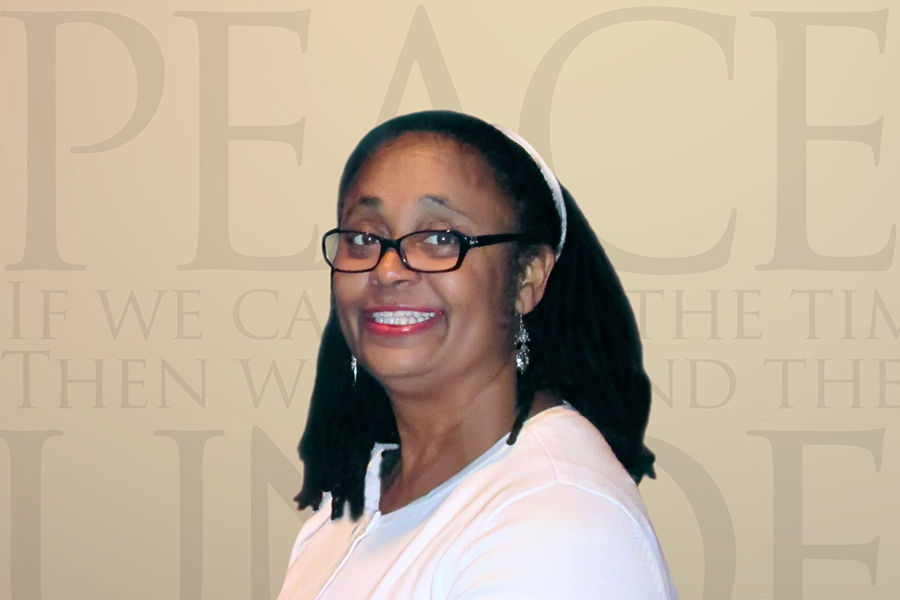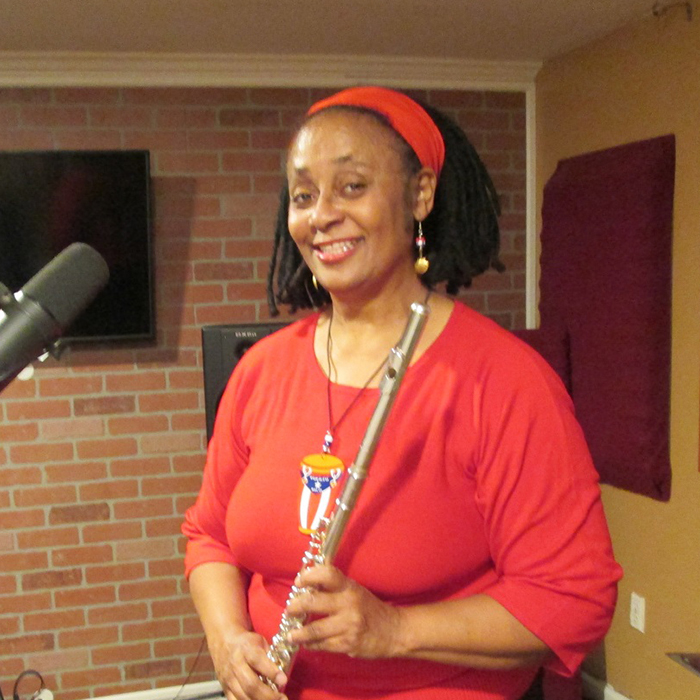
The Concerto of Change
College of Fine Arts alumna Dr. Cynthia Cozette Lee excites the classical music composition landscape through her innovative music and poetry
Dr. Cynthia Cozette Lee (CFA 1975) has many talents — composer, musician, arranger, poet, author, librettist, producer, director, performer and educator.
Her boundary-shattering education and career began with two musical gifts — a trio of aging violins from a friendly neighbor given to her family when she was young and a used piano acquired by her father.
She has a growing catalog of more than 150 compositions for orchestral, choral, chamber, string and wind ensembles and more than a dozen flute works as well as four operas.
We sat down with Cynthia Cozette to ask a few questions about her career and compositions.
From a young age, music has been integral in your life. What was your process in deciding to follow the arts as a career path?
Being first and changing the status of the music landscape was not a deliberate choice for me. Being the first Black and first woman to graduate from the University of Pennsylvania with a master’s degree in music composition was the result of my hard work and enormous dedication to my musical profession.
I knew that art would be an integral part of my life while growing up in Pittsburgh. I had to choose in which direction and which art form to embrace as a career.
Immersed in music and the arts through piano, flute, violin, guitar, ballet and jazz lessons throughout my childhood and early teenage years, I composed my first piece at age 15 by entering a music composition contest. My entry “The Nymph” was awarded an honorable mention in the Pittsburgh Flute Club Composition Contest, and subsequently, I received lessons with music composition Professor Joseph Wilcox Jenkins at Duquesne University. After my enriching experience with Professor Jenkins, I developed a passion for music composition and decided to choose classical music composition as a career.
While attending Taylor Allderdice High School, I went on to earn a scholarship for lessons with the Pittsburgh Symphony Orchestra’s principal flutist, Bernard Goldberg. In addition, I would sometimes volunteer for the Pittsburgh Opera.
I was fortunate to have strong music mentors who supported and strengthened me including my mother and outstanding music teachers.
How do you find inspiration for your compositions/poetry?
 I want to tell hidden stories in innovative ways that excite the classical music composition landscape. These stories include the life of my great-grandfather, an African slave who fought as a sergeant in the Union Army as part of the United States Colored Troops; my mother, who showed me the importance of strong character and intellect; and my junior high music teacher, Lawrence Peeler, who was the son of Paul Lawrence Peeler Sr. one of the first Black Americans to graduate from CMU, then called Carnegie Institute. Peeler Sr. was also one of the first African American music teachers in the Pittsburgh Public Schools.
I want to tell hidden stories in innovative ways that excite the classical music composition landscape. These stories include the life of my great-grandfather, an African slave who fought as a sergeant in the Union Army as part of the United States Colored Troops; my mother, who showed me the importance of strong character and intellect; and my junior high music teacher, Lawrence Peeler, who was the son of Paul Lawrence Peeler Sr. one of the first Black Americans to graduate from CMU, then called Carnegie Institute. Peeler Sr. was also one of the first African American music teachers in the Pittsburgh Public Schools.
I help others to understand the plight and the struggle the African American community still is going through today. I believe history plays an important role in in one's life. Understanding what history means helps us to become more informed. And without history, I believe we have a loss of identity.
Photo by H. A. Lee, Photographer
How did your education in musical composition prepare you to reach your goals?
At CMU, I expanded my composition, theory, piano and music instrument training, and I found a life-long mentor in the late Professor Roland Leich. He encouraged me to develop my tonal style of composition in the midst of the atonal revolution in contemporary classical music composition.
Also, at CMU, I experienced hard work and study that was mitigated by comradery and mutual support by the students. I was appointed the College of Fine Arts peer counselor for the Carnegie Mellon Action Program (CMAP), which was launched in 1968. CMAP’s initial aim was to increase the university’s recruitment and retention of African American students and has since evolved into the Center for Student Diversity and Inclusion.
You need that positive support like CMAP because of so much negativity in society as a minority. CMAP offered this support to minorities at CMU.
After CMU, I decided the best path for my music development was to study under prominent avant-garde composers George Rochberg and George Crumb. After my arrival at the University of Pennsylvania, I realized that I was the only Black American and only female in my class of music composition during my first year of study. This experience only made me more committed to pursuing a future in classical music.
I developed my own unique tonal sound and style by further researching the music of French impressionistic composers such as Debussy and Ravel and the music of Black Nationalists composers like R. Nathaniel Dett.
I believe my sound shines in my four operas — “Adea,” “The Black Guitar,” “Partway to Freedom” and “Let Courage Be The Light” — and my orchestral compositions — “Ebony Reflections for Chamber Orchestra,” “Nepenthe Concerto for Piano and Orchestra” and “A.M.E.R.I.C.A.”
We need the support of others to thrive as musicians. Without that community support, school support and home support, I would not be the musician I am today.
What is on the horizon for your future?
Looking ahead, I hope to reach even more people through my first album of original flute songs “Africa Enchants Me: A Celebration of Flute Songs,” my book “The Forgotten Schoolhouse: Original Poems and Stories on Faith, Love, Nature and Wonder” and an increased interest in composing, writing novels and performing my original works around the world.
I plan to continue collaborating with my sister, Dr. Hazel Ann Lee, an award-winning poet and songwriter in writing my operatic works. I also hope to organize future community concerts like I have done in the past at the Free Library of Philadelphia’s Juneteenth Day events, which our sister songwriting team has orchestrated for the last five years.
In the past, we have produced concerts, poetry and song tributes to Black scientists and civil rights leaders and programs that highlight the historical achievements of educators. It's just wonderful to see how Juneteenth Day, especially has mushroomed into a large, important holiday for the country.
And as the country learns from its history and looks to make changes for the future, I hope that children will see something different than they did when looking at artists on stage or in the orchestra pit.
I hope that this movement continues and changes the performance landscape of the universities and classical music as an art form, so that we do see more qualified African Americans and other minorities hired in major symphonies, orchestras, opera companies and ballets.
Photo illustration by Carnegie Mellon University featuring photo by H.A. Lee, Photographer